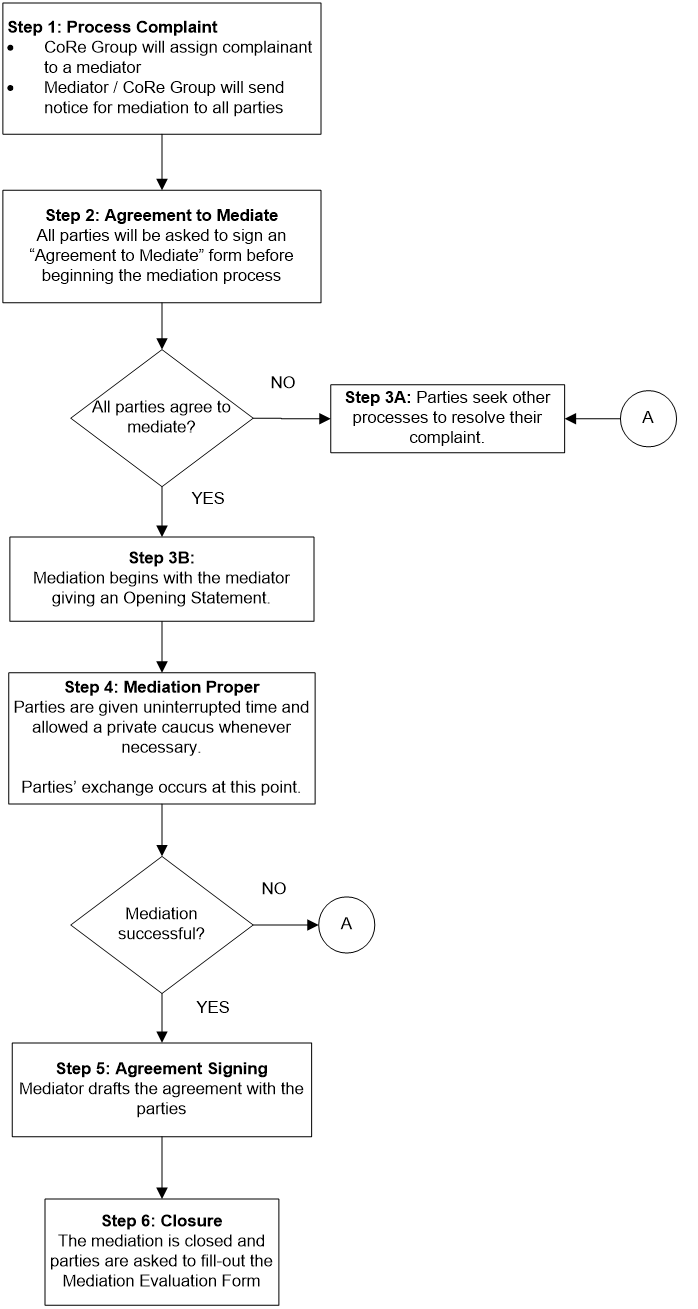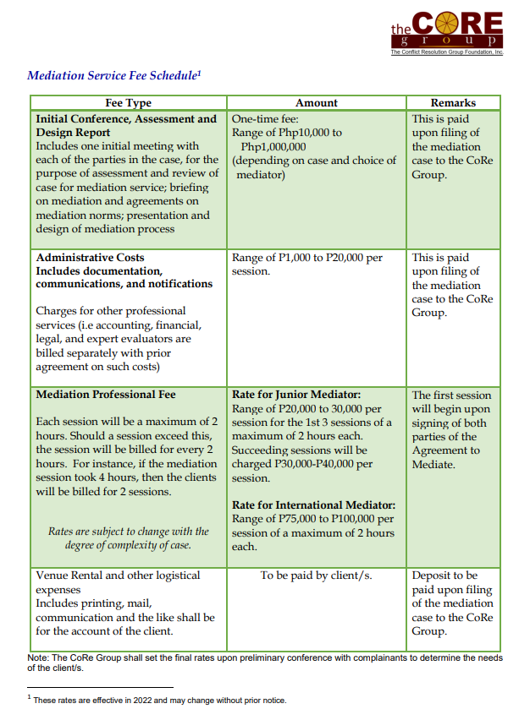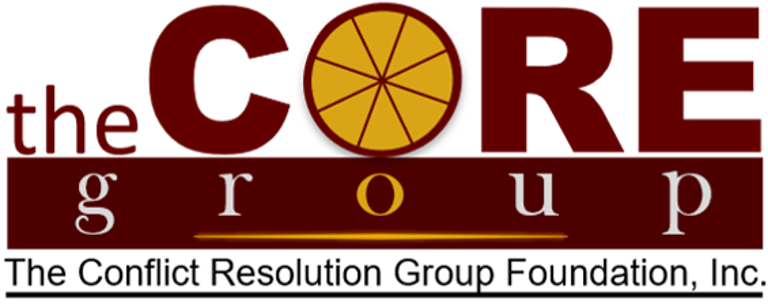Mediation Procedures (at a glance)




Mediation Fees:
Call us to know more about our services.
Description of our Mediation Process
What is Problem solving Mediation versus Transformative Mediation?
In over two decades, The CoRe Group has provided two different approaches to mediating disputes. First is problem-solving mediation, a framework that majority of existing mediators around the globe follow. This form of mediation is geared towards pinpointing the main problem, often resulting from incompatible needs or interests, then working with parties to find the solution for all those involved. The focus of the mediator is in getting parties from point A (which involves recognizing the problem) to point B (coming up with a mutually-satisfactory agreement). This approach is commonly seen in mediation services of government / administrative agencies, court-annexed mediation and private commercial mediation that deal with the following:
✓ Assets: such as land claims, landlord-lessee, intellectual property, other money claims
✓ Workplace issues: such as office policies, CBA, labor-management disputes, harassment and other grievances
✓Business transactions: including dissolution of partnership, distributorship issues, franchise concerns, loans / credit deficiencies, medical mal-practice, customer relationship problem.
The next approach that The CoRe Group has espoused through the years is transformative mediation. Our mediators recognize that conflict bears a deeper, more personal influence on individuals involved. Robert A. Baruch Bush and Joseph Folger writers of The Promise of Mediation highlights that "mediation's greatest value lies in its potential not only to find solutions to people's problems but to change people themselves for the better, in the very midst of conflict." In line with this principle, the CoRe Group developed the Values-based Mediation program where mediators bring people together through an exploration of the most fundamental values that are treasured by each person. The mediator becomes very active in helping parties understand oneself and the role he/she plays into the conflict situation. It is through the recognition of one’s responsibility in the situation, as well as understanding of the other’s point of view that the mediation process can begin to move forward. Parties are empowered to drive the process to the direction they find to be mutually beneficial. This process is proven to be successful in creating durable, long-term resolution of intractable conflicts involving:
✓ Family: parent-child conflict, sibling disputes (particularly inheritance issues), specific aspects of legal separation allowed by law, family business conflict
✓ Community: disputes among homeowners associations,
✓ Company - Stakeholder issues: issues that occur between extractive industries, their host communities, local government and national government agencies;
✓ Large public disputes: companies or government agencies dealing with public interest groups
✓ Conditions requiring dialogue: principles of Transformative Mediation is also used on companies that aim to have CSR programs that create greater, long-term impact on beneficiary communities; companies needing to enhance relationship with host communities
The CoRe Group has been successful in both problem-solving and transformative mediation. However, our training programs have been geared towards the transformative approach to fully equip our mediators with the toughest conflict situations.
